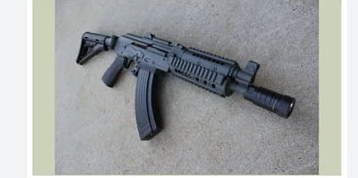The national firearms act (NFA) holders being a pivotal part of guidelines in the world of firearms control in the states. Introduced in 1934, responding to gangster-relevant violence during the Prohibition period, the NFA enforced stringent restrictions in the make, transfer, and taxation of certain kinds of firearms and extras. Here is an intensive examine what the NFA requires and its particular value:
Scope of Regulation: The NFA primarily targets firearms and extras that happen to be regarded particularly hazardous or have possible military use. This can include but is not limited by unit guns, simple-barreled rifles and shotguns, suppressors (silencers), harmful devices (including grenades and bombs), as well as other tools as based on the Respond.
Registration and Taxation: Among the key provisions of your NFA is the necessity for the registration of NFA-controlled firearms and accessories. Proprietors must publish an application for the Bureau of Alcoholic beverages, Cigarette, Firearms, and Explosives (ATF) along with a one-time tax settlement. This registration procedure requires thorough background checks and comprehensive documentation.
Transfers and Thing: The NFA also manages the move of NFA things. Any transfer, regardless of whether through transaction, gift item, or inheritance, should go through the ATF’s acceptance process. Thing of NFA goods without correct sign up and authorization can be a federal government offense punishable by serious penalties, including large fines and imprisonment.
Authorized Specifications and Conformity: Agreement with all the NFA needs stringent adherence to the procedures. This includes sustaining suitable information of possession and making sure that any adjustments or modifications to NFA items abide by legal requirements. Failing to conform can result in legitimate implications and also the confiscation of firearms.
Effect on Gun Culture: The NFA has sparked sizeable argument throughout the firearms group. Although proponents believe that it will help suppress against the law trafficking of harmful weaponry and increases public safety, foes often see it as being an infringement on Next Amendment rights plus an needless burden on regulation-abiding pistol owners.
In conclusion, the National Firearms Act continues to be a cornerstone of firearms regulation in america, imposing rigid controls on the acquisition and move of certain kinds of firearms and components. Understanding its procedures and complying using its specifications are crucial for any individual active in the thing or transfer of NFA-licensed things.




